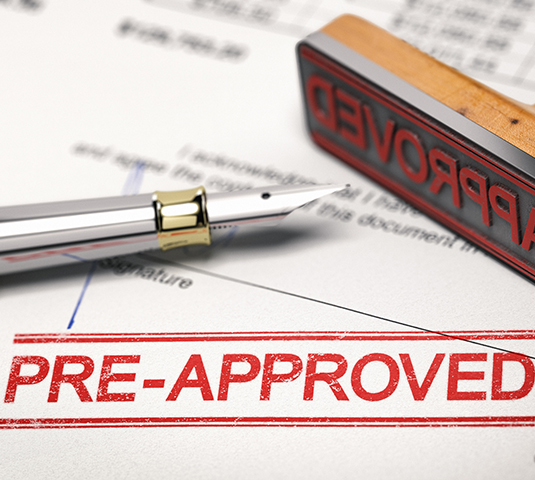Get Pre-Approved, Not Just Pre-Qualified
 Why Pre-Qualification Isn’t Enough
Residential:
Why Pre-Qualification Isn’t Enough
Residential:
Pre-qualification is a fast, informal estimate of how much home you might afford. It’s based on self-reported income and debt with no verification meaning it holds little weight. Most serious sellers won’t consider offers backed only by a pre-qualification letter.
In today’s residential market, most serious sellers won’t even consider offers backed by a pre qualification letter alone. A pre-approval shows you’re ready, credible, and capable of closing which gives you the edge when it matters most.
Commercial:In commercial real estate, there’s no such thing as a “pre-qualification” letter. Lenders and sellers expect a demonstrated financial capacity and, in many cases, proof of liquidity, track record, and borrowing history. A strong pre-approval package or proof of funds is essential when making an offer.
The Power of Pre-Approval Residential:A pre-approval means your lender has already verified your income, credit, debts, and assets. You’ve cleared initial underwriting, and your finances have been reviewed thoroughly making your offer stronger and credible.
Commercial:Pre-approval in commercial deals often includes both a personal and entity financial review, especially for larger or income-producing assets. Lenders evaluate your liquidity, your experience, and the asset’s cash flow potential. A letter of interest or loan term sheet may accompany your offer if your lender is already engaged.
Benefits of Pre-Approval:- Shows sellers you’re a serious, qualified buyer
- Gives your offer credibility with sellers and brokers
- Speeds up the final loan process once under contract
- Helps you shop with confidence, within your true purchase power
- Strengthens your negotiation position
Lenders will request documents to verify your financial situation, including:
For Residential:- Employment and income verification
- Pay stubs and tax returns
- Bank, investment, and retirement statements • Credit report and debt obligations
- Proof of down payment and closing cost funds
- 2–3 years of business and/or personal tax returns • Personal financial statement
- Proof of liquidity (bank statements or assets) • Organizational docs (LLC, LP, Corp)
- Resume or track record (for investors or developers) • Rent roll, property income docs (if applicable)

